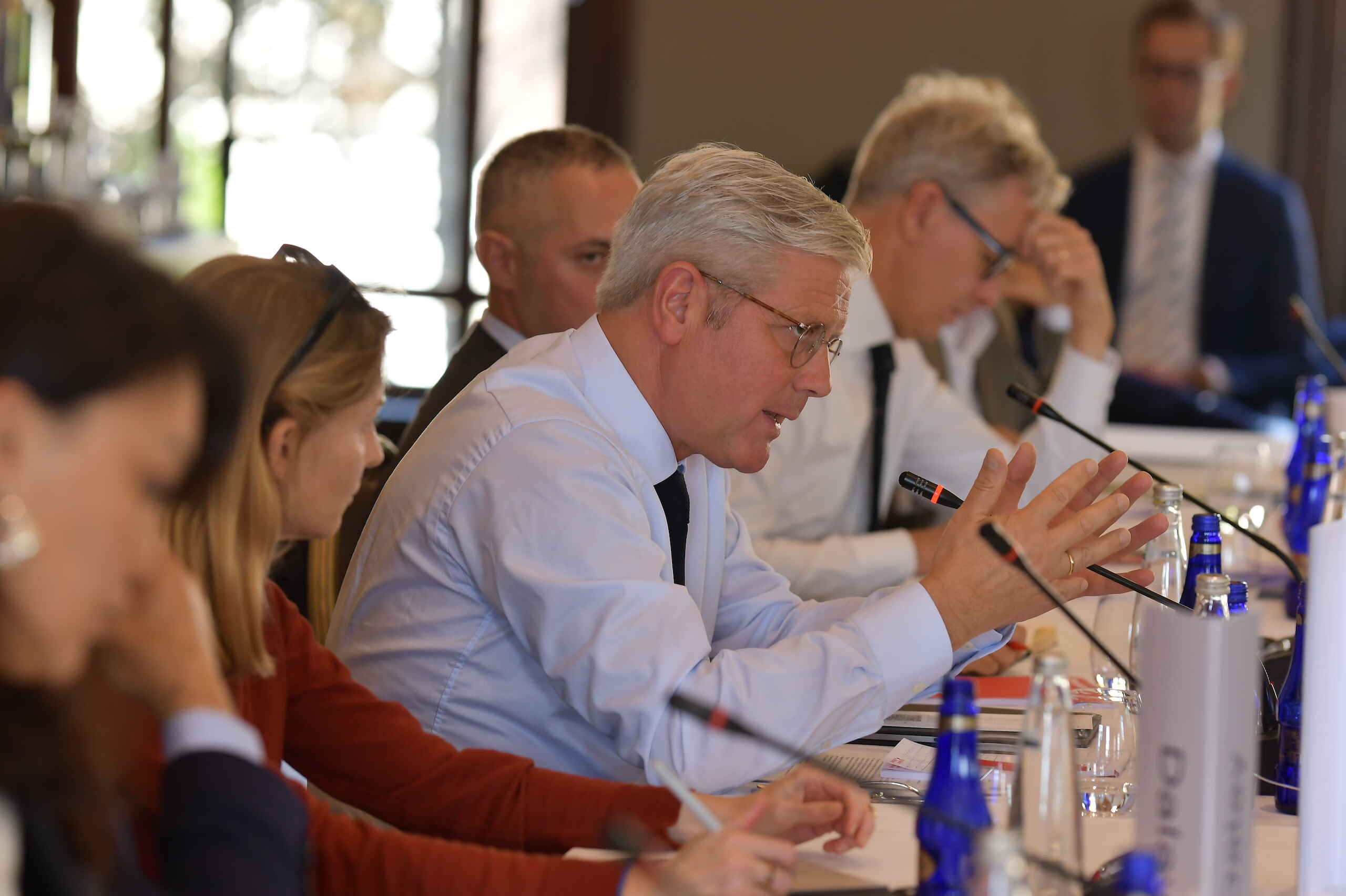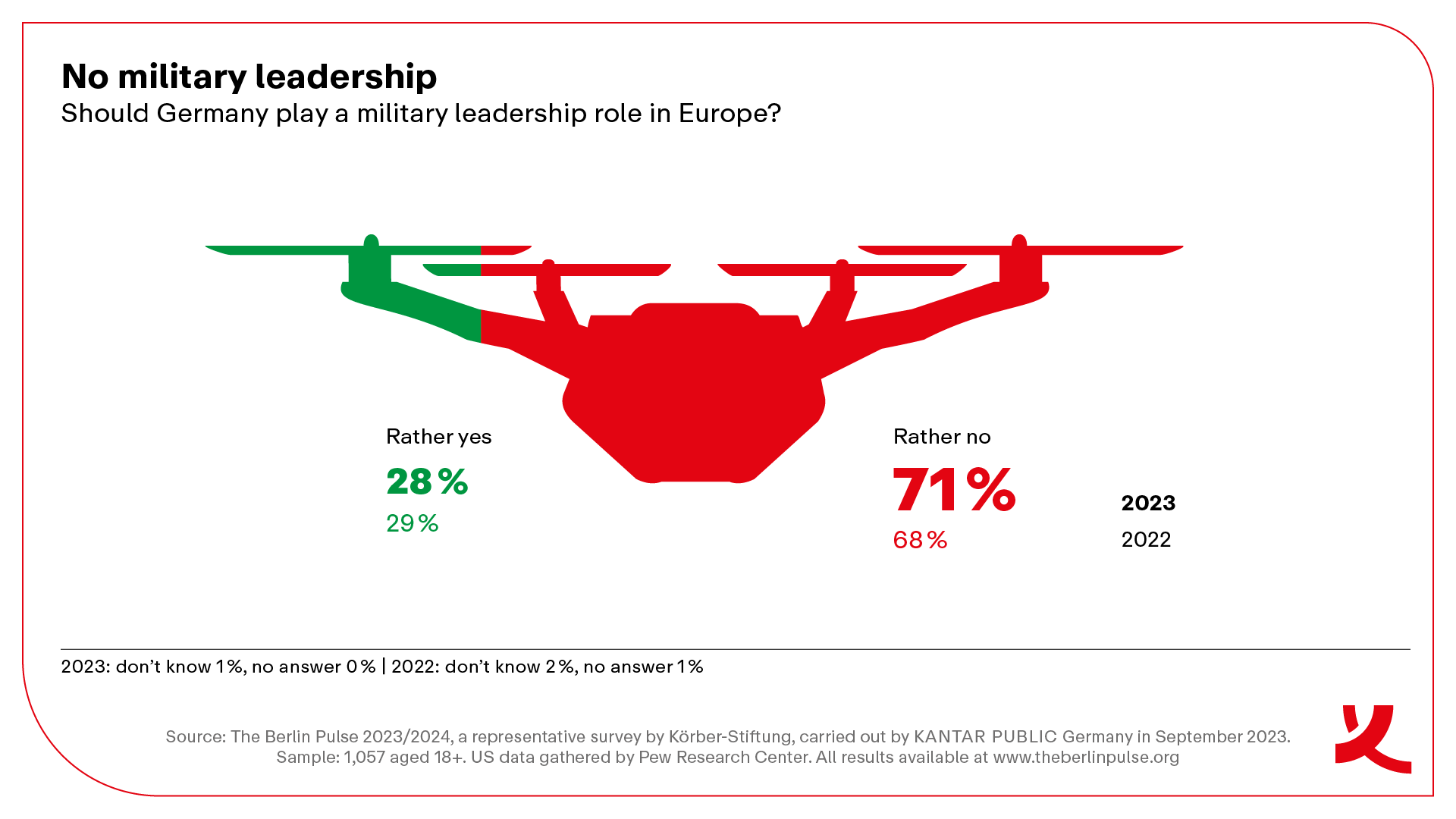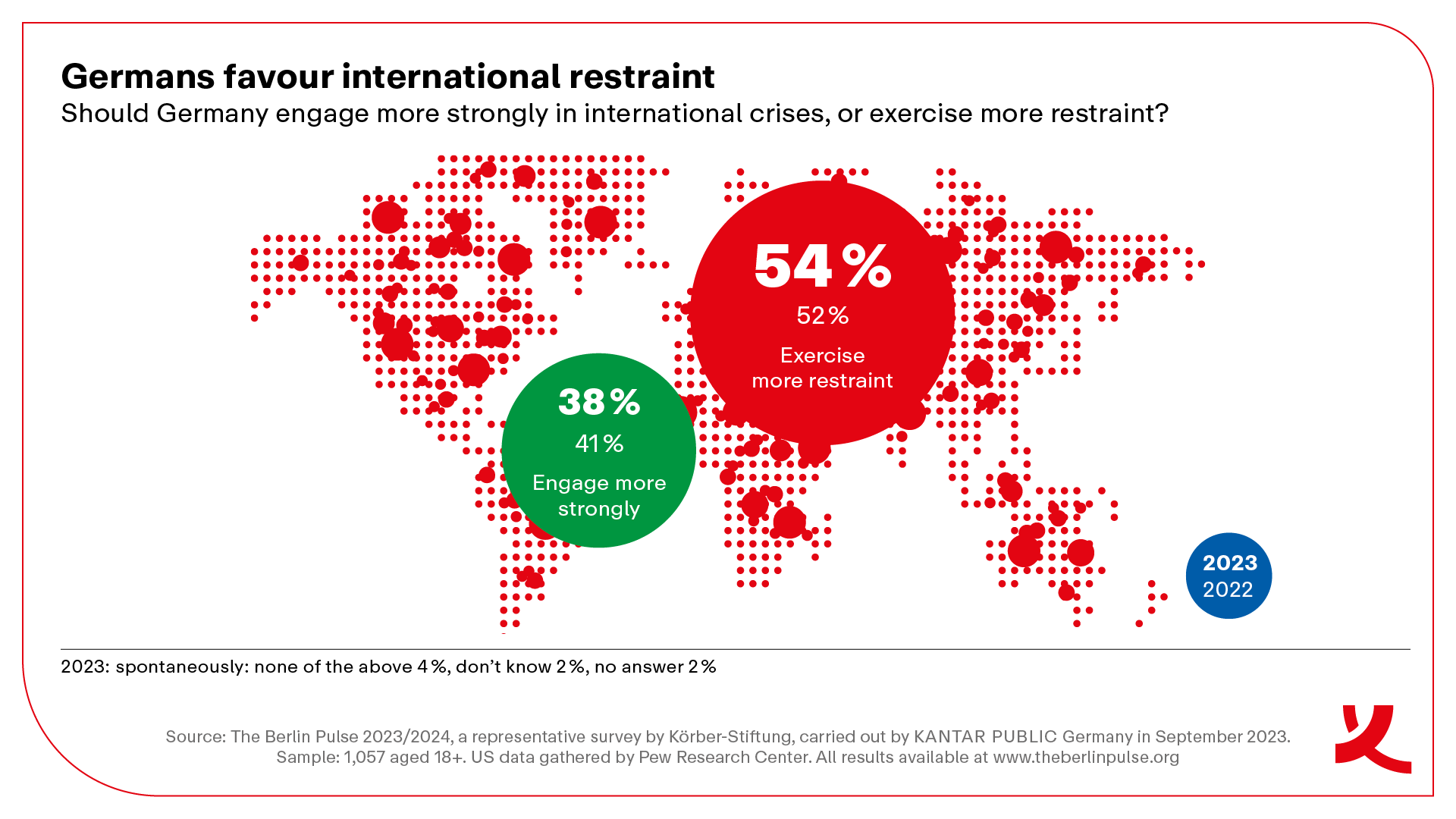
Photo: Mohamed Mekhamer
Small Groups, Big Effect
How Germany should take the lead to boost European foreign policy
By Norbert Röttgen
The central paradigms of international relations are shaking. Hegemony of the United States brought a liberal rules-based international order that, albeit never perfect, has served Europe’s interests. Today we witness a severe challenge to this order, most prominently by China. The country has the will and the capabilities to substitute that order with one based on power and Chinese interests. Hence, the new paradigm of this time can be best described as systemic rivalry – not only between China and the United States, but also between democracies and autocracies.
As part of the free world, Europeans need to find a strategic answer to this new paradigm and the accompanying challenges. Germany’s role is crucial for doing so. However, it is particularly difficult for the country to live up to this task because, in contrast to others, it is still struggling to answer the questions of what role it wants to play in Europe and beyond.
Its European neighbours have long understood that Germany matters for transforming the European Union into a geopolitical actor. If it is not willing to take the lead, this simply will not happen. For Germany this is not just a matter of security. As an export-oriented economy, maintaining its prosperity fundamentally depends on everyone complying with international rules. As of now, this order is eroding at breathtaking speed and Europe is doing little to counteract this development.
In view of Russia’s war in Ukraine, unprecedented brutal Hamas terror against Israel in the Middle East and China’s global ambitions, it has become more urgent than ever for Germany to live up to these expectations and accept the role of responsible leadership in Europe. Defending the European peace order that Russia has attacked and investing in security in the Middle East could be starting points towards a European foreign policy, but it is far from a reality. There is no European consensus on transferring competences to Brussels and on allowing foreign and security policies to be implemented by the EU. The current gridlock is unlikely to change in foreseeable future, as the positions of member states are too far apart.

To escape this dilemma, we need to set up a European foreign policy with a small group of member states willing and capable to coordinate their actions. Germany is in a unique position to achieve this as it can bring together different member states. These would not only agree on a policy; they would also implement it together, similarly to how France, Germany and the United Kingdom cooperated in negotiating the Iran nuclear deal. Such an approach to European foreign policy should always be open to all member states and take place in close coordination with the EU institutions. But, once set in motion, there would be no veto anymore, which is precisely what is holding back the EU and its member states at the moment.
Northern Africa is one region where such joining of forces is needed. It is critical for Europe’s stability and yet we entirely lack a long-term strategy for it. The member states on the Mediterranean and those experiencing a high level of irregular immigration should work together in creating real perspectives for people to stay in their countries. This requires long-term commitments and proper investment.
Europe has the potential to leverage its economic and political weight much better on the international stage. But, given the economic success of China, it is crucial that we coordinate closely with the United States. It is particularly in the field of technological leadership that the systemic rivalry and who ultimately prevails will be decided. While Germany and Europe have world-leading scientists, we often lack the United States’ ability to translate science into products. Our goal should be to strengthen our military alliance by complementing it with a technological alliance that benefits both sides. Despite the deep political divisions in the United States, Americans across party lines understand that China represents a severe technological, economic, military and political threat. Therefore, the relationship between the United States and Europe, in particular Germany, will depend on the extent to which we are prepared to align our China policies.
Leading Europe in times of changing paradigms and power shifts requires more than coming together and coordinating with our transatlantic partners. It also entails a complete reboot of our relations towards the so-called Global South, away from well-meaning but patronizing development aid and towards a relationship on equal footing.

Niger, a country of utmost importance to Europe’s stability, exemplifies Europe’s failure. In a lack of strategic foresight, we thought it was enough to provide the country with aid and some military support against extremists to stabilize it. Instead, we should have massively invested in Niger’s tender seed of democracy to ensure that the local population recognizes its inherent worth. Having failed to do so, China and Russia will now fill the void.
We need to learn to engage with the countries of the Global South based on their interests and not primarily ours. Supporting them to succeed politically and economically in the long term, without becoming dependent on China, would be the best outcome for Europe. In doing so, we should focus on the huge potential these countries have – for example, in renewable energies – that so far we have largely ignored.
A German and shortned version of this piece was published by Handelsblatt on 22 November 2023.

Norbert Röttgen is a member of the German Parliament and the former head of its foreign affairs committee.